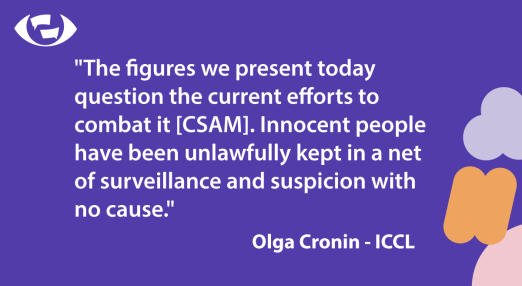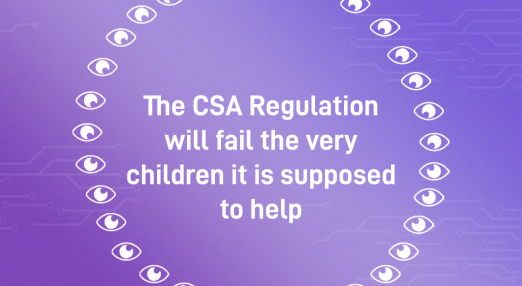PEGA hearing: state hacking and spyware in Germany
On 14 November, EDRi observer Andre Meister from German digital rights newspaper netzpolitik.org, spoke at the PEGA committee's hearing in his capacity as an investigative journalist, covering state hacking for over a decade. Check out what he had to say to the PEGA committee responsible for investigating the use of the Pegasus spyware in Europe.
Filter resources
-

PEGA hearing: state hacking and spyware in Germany
On 14 November, EDRi observer Andre Meister from German digital rights newspaper netzpolitik.org, spoke at the PEGA committee's hearing in his capacity as an investigative journalist, covering state hacking for over a decade. Check out what he had to say to the PEGA committee responsible for investigating the use of the Pegasus spyware in Europe.
Read more
-

Europol management board in breach of new rules as soon as they came into force
The EU’s police agency, Europol, has landed itself in trouble again. Statewatch has now revealed that the agency’s management board was in breach of the new rules governing the agency as soon as they came into force in June.
Read more
-

“e-Evidence” trilogues: what’s left of fundamental rights safeguards?
In an open letter addressed to policymakers, an EDRi-led coalition of digital rights, lawyers, journalists, media organisations and internet service providers associations are ringing the alarm bell. We warn against the foreseen framework that could seriously endanger freedom of expression, privacy rights and the right to a fair trial.
Read more
-

People working in the Czech media do not trust technology companies, they are also concerned about artificial intelligence decision-making
These findings come as a result of a survey conducted in the summer of 2022 as part of the Promoting human rights in the digital era project. The digital legal organisation and an EDRi member in the Czech Republic IuRe (Iuridicum Remedium) also took part.
Read more
-

Advocate General recklessly calls for watering down privacy protections
On 27 October, the Advocate General (AG) Szpunar of the Court of Justice of the European Union (CJEU) released his opinion on the French ‘HADOPI’ system against online copyright infringements. The case has potentially important implications for the ongoing political debate on data retention by private companies for access by law enforcement authorities.
Read more
-

Activists v. Poland. European Court of Human Rights hearing on uncontrolled surveillance
On 27 September, the hearing was held at the European Court of Human Rights, following the application against Poland lodged by activists from Poland’s Panoptykon Foundation and Helsinki Foundation for Human Rights, joined by a human rights attorney.
Read more
-

Europol is going to collect a massive collection of intimate conversations from European youngsters
This story begins with the creation of a new European agency, but ends with one of the world's largest databases of private chats and images shared by European youngsters—built by the police.
Read more
-

PEGA hearing about spyware and ePrivacy
Following the public revelations of the widespread use of Pegasus and other spyware, the European Parliament formed the Committee of Inquiry to investigate the use of Pegasus and equivalent surveillance spyware (PEGA) in March 2022.
Read more
-

Chat Control – A good day for privacy
The Austrian parliament voted in its EU committee to adopt a resolution that has a binding effect on the position of the Austrian government not to agree to the proposal for the controversial child sexual abuse regulation, if it is not brought in line with fundamental rights.
Read more
-

Position paper: A safe internet for all – Upholding private and secure communications
Despite the importance of its goals, the European Union’s proposed Child Sexual Abuse Regulation (CSAR) will not only fail in its aims to protect young people, but it will also even harm those it wants to protect.
Read more
-

News from Ireland question effectiveness and lawfulness of online scanning for tackling child sexual abuse: Lessons for the EU
An investigation in Ireland published today shows that tools for scanning private communications to detect child sexual abuse material (CSAM) online suffer not only from low accuracy and high rates of false alarms but have led to people’s data and privacy being put in danger without reasonable suspicion.
Read more
-

Johansson’s address to MEPs shows why the CSA law will fail the children meant to benefit from it
On 10 October 2022, EU Commissioner for Home Affairs, Ylva Johansson, addresses the European Parliament’s Civil Liberties (LIBE) Committee about the proposed EU Child Sexual Abuse Regulation (2022/0155). The address follows months of criticism from civil liberties groups, data protection authorities and even governments due to the risks it poses to everyone’s privacy, security and free expression online.
Read more
